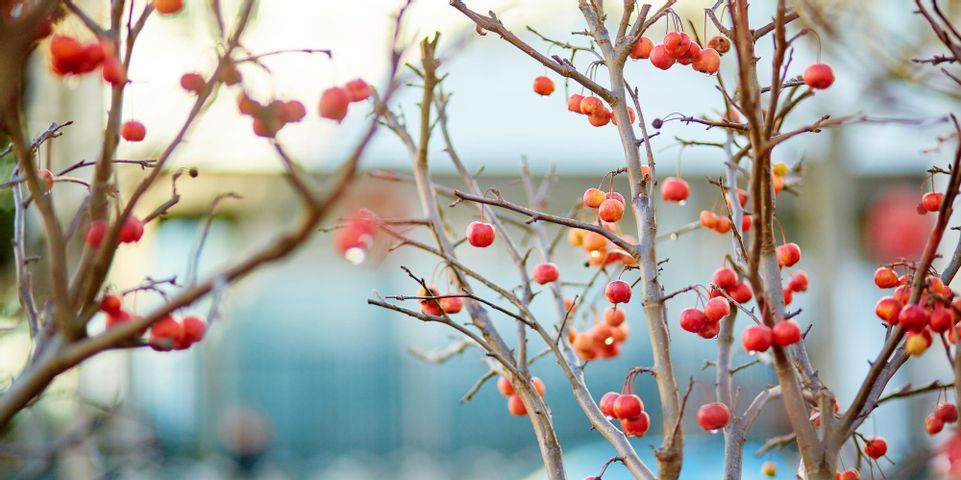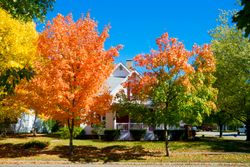What Landscapers & Gardeners Need to Know About Wrapping Trees for Winter

As the weather gets colder, landscapers and gardeners should start thinking about wrapping their trees to prevent sunscald—a combination of sun and freezing temperatures that damages bark and its underlying layers of tissue. To ensure that you have the time and know-how to wrap trees before winter arrives, here’s a brief guide on the subject.
Which Trees Should Be Wrapped?
Trees that lose their foliage in the fall and have thin bark are susceptible to sunscald because they lack protective layers. Landscapers and gardeners should wrap linden, honey locust, poplar, aspen, crabapple, plum, cherry, and maple trees, especially if they’re young. Any tree that’s been pruned so that its lowest branches are high off the ground should also be wrapped because most of the lower trunk is exposed.
Which Wrap Should Be Used?
 Use commercially available tree wrap made of vinyl, foam, or burlap for the task. Don’t use paper. It conducts heat and could scar the tree. Plastic guards also work well. Avoid using black plastic, however. Like paper wraps, black plastic guards absorb the sun’s heat and may damage trees.
Use commercially available tree wrap made of vinyl, foam, or burlap for the task. Don’t use paper. It conducts heat and could scar the tree. Plastic guards also work well. Avoid using black plastic, however. Like paper wraps, black plastic guards absorb the sun’s heat and may damage trees.
How Should Trees Be Wrapped?
Start with the youngest trees—those less than 5 years old. They’re the most vulnerable to freezing. Finish the job by working your way through older trees, which tend to have thicker bark but may still need protection.
Wrap the bottom of the trunk first, covering about a third of it each time you go around. The wrap or guard should be tight enough to adhere to the tree without limiting air circulation. When you reach the lowest branches, fasten the wrap or guard in place with packing or duct tape. Don’t remove it until after the last frost, which is usually in April or May.
Landscapers and gardeners in need of wrap, plastic guards, and tape should visit Glynn Young's Landscaping & Nursery Center in Nicholasville, KY. Since 1988, they’ve supplied all the commercial and residential landscaping tools and gardening products needed to keep plants and trees healthy over the winter and throughout the year. If you’d like their certified staff to help you winterize your garden, call them today at (859) 881-8111, or visit them online to learn more about their garden center.
About the Business
(93 reviews)
Have a question? Ask the experts!
Send your question

